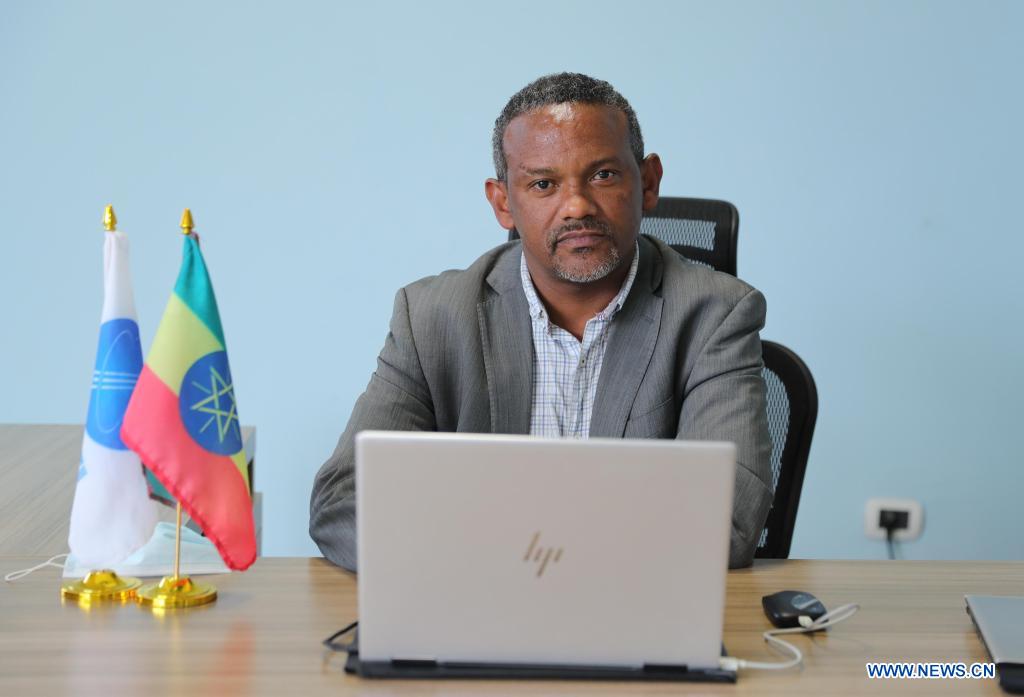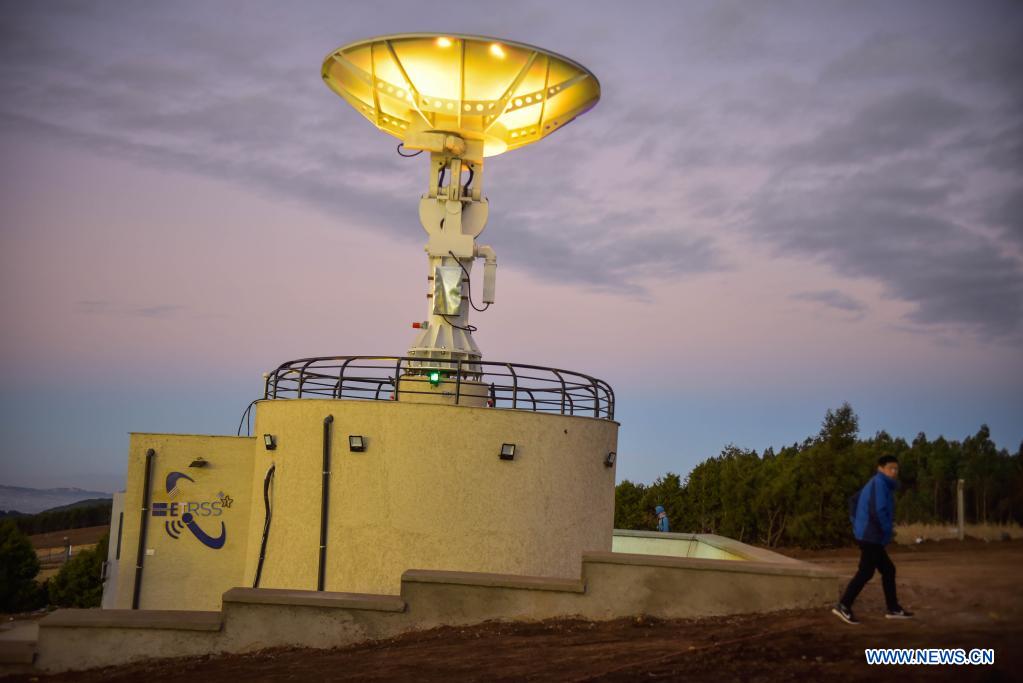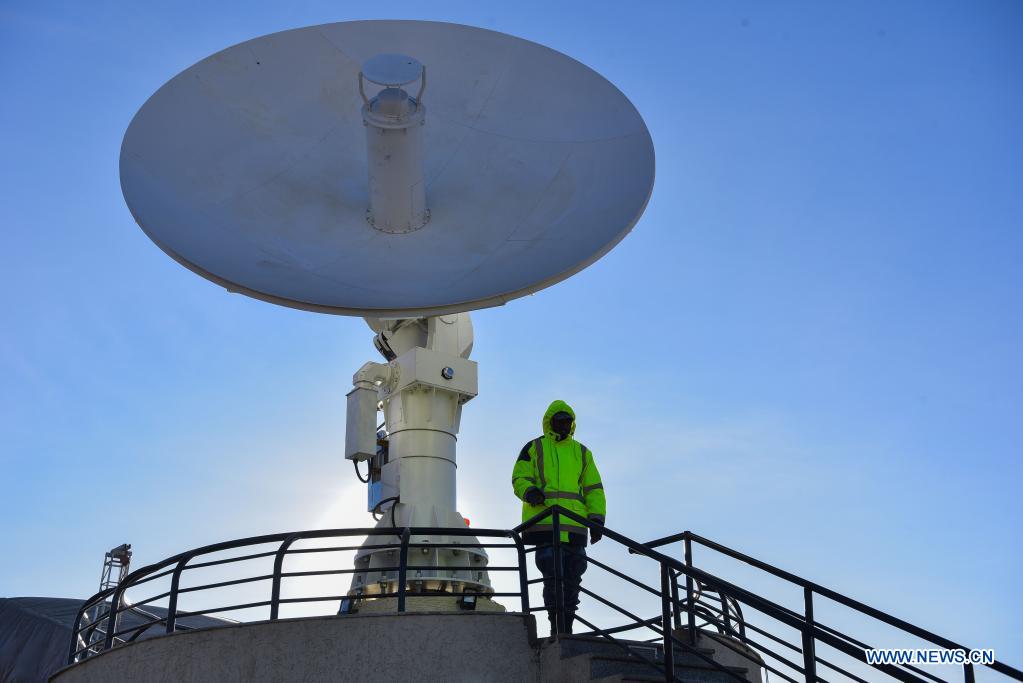China-backed satellite boosts Ethiopia's efforts in building climate resilience
Abdissa Yilma, Director General of the Ethiopian Space Science and Technology Institute (ESSTI), is optimistic Ethiopia will effectively tackle the adverse effects of climate change through science-driven and informed decision making with the help of China-backed satellites.
The ESSTI, a young Ethiopian institution that seeks to exploit the multidimensional use of space science and technologies, aims to eventually enable the country's aspiration of building an environment-friendly and climate-resilient economy.
Courtesy of the ever-expanding Sino-Ethiopia ties, Yilma believes this aspiration is fast becoming a reality. The director general, in particular, spoke highly of Ethiopia's recent launch of two Chinese-backed satellites.
"Be it in the agriculture sector or the climate, when you get accurate data and timely data it will be good to make a decision at all levels; but if the data is wrong and the data is not timely and is not accurate, definitely the decision that you make will have its own effect," Yilma told Xinhua in a recent interview.
In December 2019, the East African country launched its first-ever satellite, abbreviated as ETRSS-1, into space from China. The command and control center is located in Ethiopia at the Entoto Space Observatory facility located on the 3,200-meter hill of Entoto on the outskirts of the Ethiopian capital, Addis Ababa.
The 72 kg multi-spectral remote sensing satellite, which is stationed some 700-km away from the earth, is expected to monitor the environment and weather patterns for better agricultural planning, drought early warning, mining activities and forestry management of the country.
The country also in December last year announced the launching of its second Chinese-backed satellite, abbreviated as ET-Smart-RSS, from China's Wenchang spacecraft launch site. The second satellite was said to have advanced resolutions capable of capturing pictures in a clearer way.
"It's more than a year since the first satellite was launched and, so far, it's in good progress. The satellite is safe and functioning properly," Yilma said.
"We expect that the utilization of satellite imageries will impact the agricultural sector, including monitoring and taking the necessary measures in relation to climate change; In the future, it will put Ethiopia in a better position to have an informed decision," he added.
According to Yilma, Ethiopia, as a beginner in space science technology, has benefited from its partnership with China in building an environment-friendly and climate change resilient economy.
"We had no such experience, so it's because of the Chinese government's support that we were able to get the first satellite and also able to manage and operate the satellite," the director general said.
"By now, our engineers are fully capable of operating remotely controlling the satellite. Plus, we are in a position of getting satellite imageries and processing it and delivering it to different governmental and non-governmental agencies, including universities," he added.
The ESSTI, in partnership with the Ethiopian Ministry of Agriculture, is now tapping into the two Chinese-backed satellites' imageries for different purposes, including for yield estimation, desert locust monitoring as well as in terms of identifying irrigable lands, among others.
Yilma also stressed that despite the inconveniences created by the ongoing COVID-19 pandemic, the ESSTI was able to continue receiving valuable support from its Chinese counterparts.
"Even though they couldn't come to Ethiopia physically, they were supporting us remotely and our engineers were able to manage all the technical issues and, by now, our engineers are fully capable of operating the satellites," Yilma said.
As Ethiopia aspires to become among the leaders of space science technology in the African continent, the East African country eyes the ever-expanding cooperation with China to drive the momentum.
"The support from the Chinese government is vital and is really important," Yilma said. "We want to take this relationship to a strategic level and benefit from the rich experience that China has in this regard."





